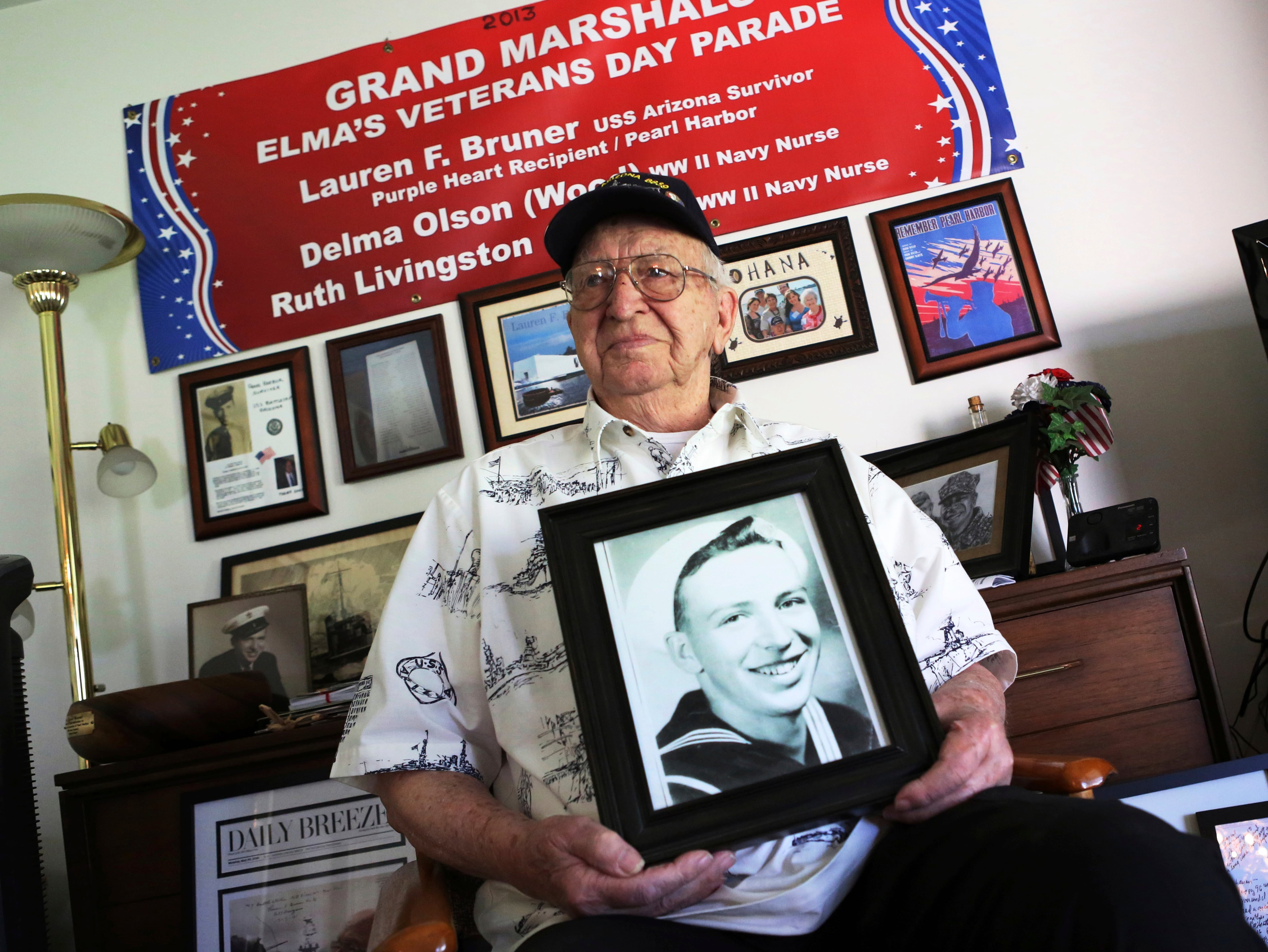On a Saturday night in December 1941, Richard Young was sitting with his buddies aboard the destroyer Worden, whiling away the evening hours before what they expected to be a leisure Sunday.
The sailors began speculating on what would happen if the Japanese Navy did attack Pearl Harbor, because despite later accounts, many at the station knew such an incident was possible, maybe even likely.
“I said I believed the Japanese would strike the oil tanks,” Young told Military Times.
But shipmate Frank Shoemaker said if there was an attack, they’d hit the battleships.
The next morning, they’d find out who was right.
Young, now 97, is one of a dwindling number of Pearl Harbor survivors and a shrinking number of World War II veterans. He’s speaking at the 78th anniversary of the attack on Saturday at the World War II Memorial in Washington, D.C.
RELATED

It is one of more than 80 events that the Friends of the National World War II Memorial has held or will hold during their four-year campaign marking the 75th anniversary of momentous events in the war that took place between 1941 and 1945.
Holly Rotondi, executive director of the nonprofit friends of the memorial, said that group sustains the memory of those who sacrificed for the war effort holding commemorative events with living veterans and family members, hosting prominent World War II historians and holding an annual teachers conference that shares World War II history and advocates for local projects marking the events and honoring veterans.
***
While lounging around reading the papers for news of home, sailors heard explosions and Young’s brother Herbert came below deck and was running along, yelling his older brother’s name.
“I asked him what was the matter, and he said that there were some strange planes buzzing around,” Young wrote in an account of the event.
Young rushed topside and saw red dots on the wings of the planes hitting ships and installations at Pearl Harbor.
“I went down the gangway yelling as loud as I could, ‘The Japs are attacking,’” Young wrote.
Young and his crewmates manned the guns.
“We had an hour of nearly steady firing,” he wrote. “The noise was enough to burst the eardrums.”
They managed to prevent one squadron from hitting their ship. The Worden went out to sea and later dropped depth charges, as commanders feared Japanese submarine attacks.
Those intense hours would be followed by years at sea and work in Pacific battles that included Midway and Guadalcanal. Young would transfer to another destroy in the Mediterranean Sea and participate in the Allied invasion of Sicily before leaving the Navy.
And then, like most veterans of his generation, he moved on with his life and started a family. Young became a Presbyterian minister and later served as chaplain of the Pearl Harbor Survivors Association from 1984 to 2004, his son, Greg Young said.
***
In a typical year the memorial hosts an average of six events for major events from the war. But due to the 75th anniversary, the organization will have 32 commemorations in 2019 and another 15 in 2020 scheduled specific to the 75th anniversary of the final year of the war.
The group also archives video interviews with World War II veterans. Its annual teachers conference hosts media specialists, librarians, curriculum coordinators and academic coaches.
That conference exposes participants to WWII historical resources and tools to educate future generations of students about the “everyday men and women whose character, courage, creativity, determination and innovation not only led to the winning of the war, but also reshaped America,” according to their website.
Organizers then advocate for participants to encourage students to fulfill a community service obligation within their communities in the year after the conference.
***
Greg Young and the rest of the family were aware of their father’s Navy service. The younger went to the U.S. Military Academy at West Point and then served six years in the Army. His son, Ian Young, served in the Marine Corps Reserve.
In 2006, the trio visited Pearl Harbor, Greg and Ian Young for the first time, for the 65th anniversary of the attack.
Even years later, the visit strikes a chord with Greg Young.
“It was so moving,” he said. “You think of all those young guys who didn’t have a life. I think about my own dad who certainly could have lost his life. The sacrifices that these guys made for us.”
For the elder Young, staying connected to that event and those he shared the experience with was an important part of his life.
Though, as the years have passed, fewer of those connections remain, as both survivors of the attack and members of the “Greatest Generation,” die off.
Rotondi noted that according to the most recently released federal data fewer than 400,000 World War II veterans remain from the 16 million who served.
While veterans remain a core of the commemoration mission, the organization also involves family members of deceased veterans and those who served on the home front.
“One of our major themes is to promote and recognize the everyday men and women who served at home and abroad,” Rotondi said.
For Young, his main concern with participating in the commemorations and sharing his experience is to try and improve understanding for future generations to improve good will.
“…as we go through history we learn lessons of things we should do and shouldn’t do and we should hand down to our children and grandchildren,” Young said.
Todd South has written about crime, courts, government and the military for multiple publications since 2004 and was named a 2014 Pulitzer finalist for a co-written project on witness intimidation. Todd is a Marine veteran of the Iraq War.





